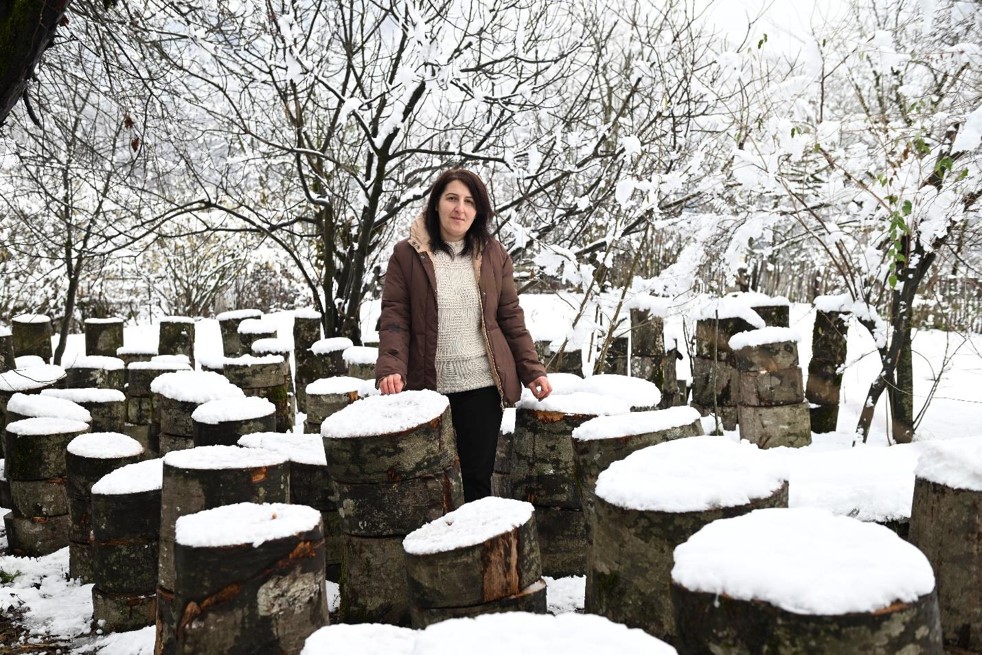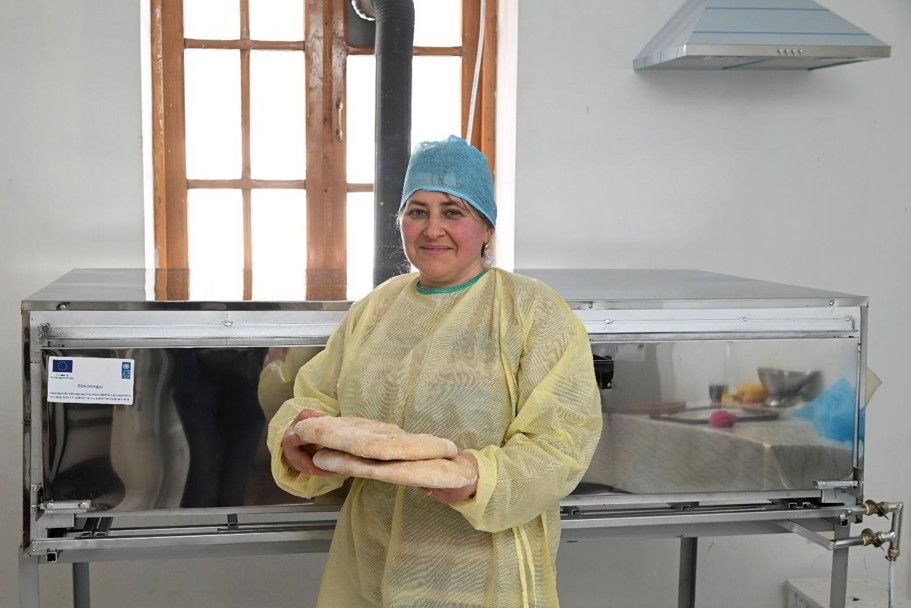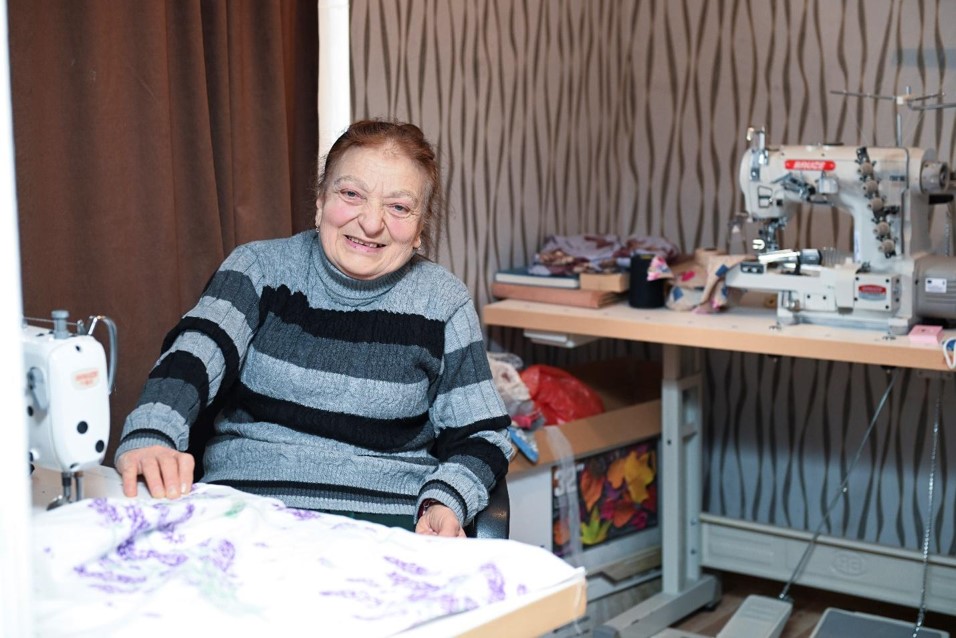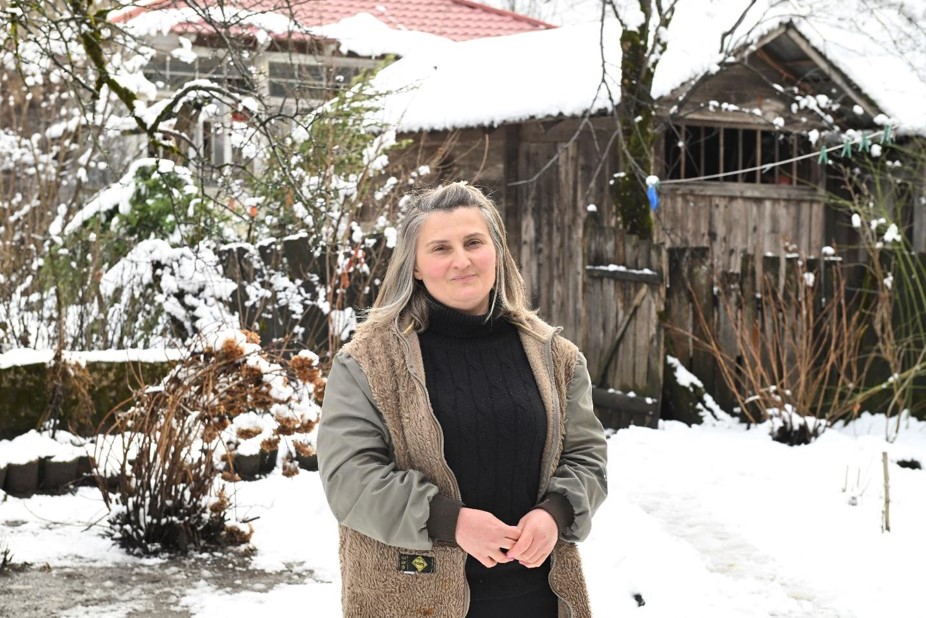EU and UNDP Help Revitalize Perevi Village through Rural Entrepreneurship. The village of Perevi, nestled in Georgia’s Shida Kartli region along the Administrative Boundary Line with the Tskhinvali Region/South Ossetia. Historically, Perevi thrived on agriculture, particularly animal husbandry and beekeeping. However, its fortunes took a downturn following the armed conflict in 2008. As movement restrictions […]
EU and UNDP Help Revitalize Perevi Village through Rural Entrepreneurship.
The village of Perevi, nestled in Georgia’s Shida Kartli region along the Administrative Boundary Line with the Tskhinvali Region/South Ossetia. Historically, Perevi thrived on agriculture, particularly animal husbandry and beekeeping. However, its fortunes took a downturn following the armed conflict in 2008.
As movement restrictions were imposed, Perevi residents lost access to vital summer pastures. Their livelihoods were disrupted leaving the community with limited prospects. Many Perevians left their village seeking opportunities in the cities or abroad. Despite these challenges, 150 families still live in Perevi, grappling with social and economic hurdles.
The European Union and UNDP, through the EU4Dialogue project, assist Perevi residents in revitalizing their village. Targeted grants and other types of support, implemented in partnership with the civil society organization ‘Regional Development Support Centre’, reached out to over 100 people, offering resources they need to kickstart rural entrepreneurship.
Perevi is just one of the conflict-affected villages where the EU and UNDP work hand-in-hand with civil society organizations, municipalities, and local communities bolstering economic and social resilience and creating opportunities for entrepreneurship and income generation.
Throughout 2023 and 2024, this support benefited up to 1,500 internally displaced and conflict-affected women across Georgia.

A New Path to Prosperity
42-year-old Tsitsino Sisvadze, a dedicated nurse at Perevi Public School, pioneers alternative agriculture practices by transforming her hobby into a sustainable enterprise. With the grant support from the EU4Dialogue project, Tsitsino purchased wooden logs, mushroom mycelium, and a drip irrigation system to set up a mushroom farm in her backyard. As snow is melting and spring is approaching, she eagerly anticipates her first harvest.
“In Georgia, women still face barriers to economic activities. I wish to address every woman who wants to start a business. Nothing can stand in your way. There’s no “I am a woman, I can’t do it”. We shall take risks and do our best. I believe that hard work bears fruit sooner or later”, says Tsitsino.

One Loaf at a Time
Nana Kapanadze, a 46-year-old village doctor, has recently taken on a new role as a baker. For her, bread baking isn’t just a pastime; it’s a response to a critical need within her community. In Perevi, access to freshly baked bread is a rare luxury, as distribution companies only deliver bread from the administrative centre once a week. The alternative? Taking matters into one’s own hands and baking bread at home.
With essential support from the EU4Dialogue’s grant programme, Nana invested in professional equipment and established a small bakery, which quickly gained popularity among Perevi residents. As the delicious smell of freshly baked bread permeates the village, Nana’s bakery brings hope for a better future.
“If my bakery keeps growing, I will be able to hire more people, creating jobs for my fellow villagers. My wish is to teach others how to bake great bread. The grant support I received is an inspiration for other women. They call me ‘smart’ and want to follow my example”, shares Nana.

Timeless Success
Meet Lida Enukidze, 70, whose inspiring story proves that it’s never too late to chase your dreams.
Lida represents an unyielding spirit of women who defy societal norms and surpass expectations. Her sewing journey began in her youth when she mastered the craft at a vocational school. After years of working in a sewing workshop, Lida joined forces with fellow villager, Mzia Beridze, to establish a sewing business. Over the past decade, they’ve catered to both individual and commercial clients.
Thanks to the EU and UNDP support, Lida’s sewing salon received a boost with new equipment, including a multipurpose sewing machine, electric scissors, and professional iron. This investment enabled a modest village enterprise to undertake larger orders, such as crafting essential bed linen for regional hospitals.
“Rural women encounter many challenges that encourage us to find solutions and grow. What we need is inspiration and positive examples. We must take care of ourselves because no one else will,” shares Lida.
“This project showed me that I can be an inspiration for other women in my village.”

Taking Flight
Khatuna Bregvadze is a 45-year-old librarian turned entrepreneur. Her story serves as an example of women’s resilience in the face of economic and social hurdles.
Like many Perevi residents, Khatuna has to supplement her professional work with agricultural activities to make a living. For the past eight years, poultry farming has been her lifeline, enabling her to make ends meet.
Through the EU4Dialogue’s grant programme, Khatuna seized the opportunity to expand her small hatchery by acquiring two incubators for hatching eggs and an electricity generator to regulate the energy supply. With this support, she now supplies fresh poultry to the village, while also boosting egg sales.
“Poultry farming is more than just a job and income. It’s my way of showing that positive change is possible, even in our small and poor village.”
Background Information:
EU4Dialogue: Support to Conflict Transformation in the South Caucasus and the Republic of Moldova is a joint initiative of the EU and UNDP under the broader EU4Dialogue programme. The project partners with local civil society organizations and grassroots groups to improve socio-economic conditions for people, build livelihoods, drive progress toward gender equality, promote youth engagement and support the peaceful transformation of conflict.
Disclaimer:
This story was produced with the financial support of the European Union and UNDP under the EU4Dialogue project. Its contents do not necessarily reflect the views of the European Union and UNDP.